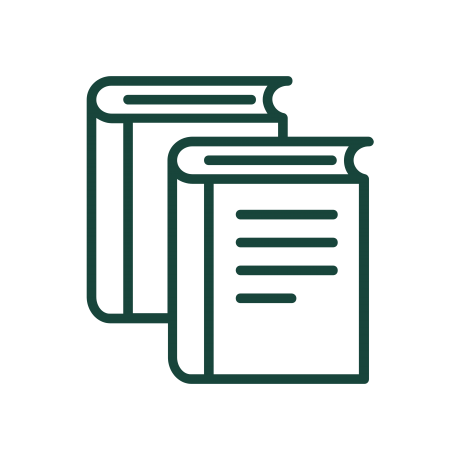
A lack of vacation time or rest creates general negativity in the workplace, which spreads from management to the rest of the organization, reducing productivity and job satisfaction (Friedman, 2015; Sy et al., n.d.). However, going on a vacation or taking time away from work improves employees’ productivity, as well as their energy and focus within the workplace. Employees then can come back to the office refreshed and excited to get back to work, which translates into better productivity, higher quality work, and more energy in their workplace. In fact, almost 70% of employees feel more satisfied with their jobs if they take regular vacations, and more satisfied employees will stay at their jobs longer, reducing high turnover and costs associated with hiring (Vinocur, n.d.).
Vacations also improve productivity both before and after the employee’s time off (U.S. Travel Association, 2014). Taking vacation time strengthens employee relationships with their families and those they care about outside of work (Hutchison, n.d.c; Kasser & Sheldon, 2009). Additionally, taking vacation time improves employees’ health, preventing heart disease and other illnesses, helping manage anxiety and depression, and improving their sleep by almost 20%. This can result in lower healthcare costs for employers and reduced stress for employees (Vinocur, n.d.). Lastly, 48% of supervisors view vacations’ impact as positive and 61% of supervisors view vacations as beneficial to mental health (U.S. Travel Association, 2014). Organizations and supervisors that support employees taking vacation time see these benefits, including increased employee retention and loyalty to the organization, as well as increased job satisfaction (Vinocur, n.d.; Mohn, 2014). Clearly, many supervisors already view vacations positively, but taking vacation time should continue to be encouraged, both from the top down and bottom up, as it leads to a happier heather work climate.
For employees to get the most out of their vacation time, they should prepare their workspace for their absence. Taking care of any final emails, setting up their “out of office” email, and organizing their work area allows employees to step away from their work for their vacation and come back to as little catch-up work as possible. If an employee must work during their vacation, they should set up certain time periods to work, then not work outside of that time, including checking their email (Hutchison, n.d.c). Taking these steps helps employees focus as much of their time as possible on their vacation, to step away from work and de-stress, and be excited to jump back into work upon their return. For more information on MSU’s vacation policies, visit MSU’s Human Resources Solution Center for walk-in services in Suite 110 of Nisbet Building or email them at SolutionsCenter@hr.msu.edu.
 At a Glance
At a Glance
Benefits of taking vacation time:
- Improves productivity
- Improves employees’ focus and energy in the workplace
- Increases retention of employees and employees’ loyalty to the organization
- Increases job satisfaction
- Almost 70% of employees feel more satisfied with their jobs if they take regular vacations
- Strengthens relationships with those outside of work
- Improves sleep by almost 20%
- Helps manage anxiety and depression
- Helps prevent heart disease and other illnesses
- Gives the body a break from constant stress
- Lowers healthcare costs
- Supervisors are in good company
- 48% of supervisors view vacations’ impact as positive
- 61% of supervisors view vacations as beneficial to mental health
How to set yourself up to get the most out of your vacation time:
- Take care of any final emails
- Set up your “out of office” email
- Organize your work area so you come back to a clean space
- If you have to work during your vacation, try to set a certain time period that you work, and do not work outside of that time period, including checking your email
 Resources on Campus
Resources on Campus
- Discuss vacation time with your supervisor to find a mutually agreeable time to take a vacation
- Human Resources Solution Center
- For more information on MSU’s vacation policies, the HR Solution Center offers walk-in services in Suite 110 of Nisbet Building and answers questions via email at SolutionsCenter@hr.msu.edu
- Academic Human Resources
- Provides more information on MSU’s vacation policies by contacting them through email at ahr@msu.edu or calling them at 517-353-5300
 References
References
Friedman, R. (2015, June 18). Dear boss: Your team wants you to go on vacation. Harvard Business Review. https://hbr.org/2015/06/dear-boss-your-team-wants-you-to-go-on-vacation.
Hutchison, J. (n.d.c). Why vacations matter. Michigan State University WorkLife Office. https://worklife.msu.edu/news/why-vacations-matter
Kasser, T., & Sheldon, K. M. (2009). Time affluence as a path toward personal happiness and ethical business practice: Empirical evidence from four studies. Journal of Business Ethics, 84, 243–255. http://dx.doi.org.proxy2.cl.msu.edu/10.1007/s10551-008-9696-1
Mohn, T. (2014, February 28). Take a vacation: It’s good for productivity and the economy, according to a new study. Forbes. https://www.forbes.com/sites/tanyamohn/2014/02/28/take-a-vacation-its-good-for-productivity-and-the-economy-according-to-a-new-study/#7652f6a85a33
Sy, T., Stephane, C., & Richard, S. (n.d.). The Contagious Leader: Impact of the Leader’s Mood on the Mood of Group Members, Group Affective Tone, and Group Processes. Journal of Applied Psychology, 90(2), 295–305. https://psycnet.apa.org/record/2005-02538-007.
Vinocur, L. (n.d.). 10 reasons why vacations matter. Take Back Your Time. https://www.takebackyourtime.org/why-vacations-matter/10-reasons-to-vacation/
U.S. Travel Association. (2014, February). An Assessment of Paid Time Off in the U.S. Oxford Economics. https://www.oxfordeconomics.com/my-oxford/projects/280061.
Additional Resources:
Diamond Resorts International. (2014, August 28). Vacation much more important than ‘nice to have’. Travel Industry News. https://www.travelindustrywire.com/article79528.html.
- 70% of people who take vacations report being satisfied with their job, 25% higher than those who do not take vacations
Eaker, E. D., Pinsky, J., & Castelli, W. P. (1992, April 15). Myocardial infarction and coronary death among women: Psychosocial predictors from a 20-year follow-up of women in the framingham study. American Journal of Epidemiology, 135(8), 854–864. https://academic.oup.com/aje/article/135/8/854/51198?login=true.
- Women who take vacations once every six years or less are more than twice as likely to develop heart disease or have a heart attack than people who vacation once a year
